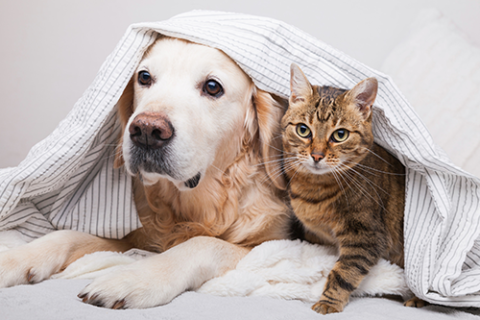
Owning a pet isn’t just about squeaky toys and cuddles on the couch. Whether it’s your loyal dog or aloof but loving cat, being a responsible pet owner means becoming a bit of a detective, a nutritionist, and yes—sometimes a first responder. While the basics of pet care are well-known, it’s the not-so-obvious stuff that often makes the biggest difference. Here are real-world, insightful tips to keep your furry friend healthier, safer, and happier—especially during the hot summer months.
Spotting Trouble Early: Subtle Signs Your Pet May Be in Pain
Pets don’t always cry out when something’s wrong. In fact, they’re biologically wired to hide pain—it’s a survival instinct. Here’s what to watch for:
Changes in Posture or Movement: Is your dog slower to jump onto the couch? Does your cat hesitate before leaping up to their usual perch? That stiffness could be joint pain, arthritis, or worse.
Excessive Licking or Chewing: Particularly on their paws, tail, or one side of the body. It can indicate anxiety, allergies, or even nerve damage.
Sudden Changes in Behavior: A normally social dog becomes withdrawn. A playful cat now hides under the bed. These aren’t mood swings—they’re red flags.
Bad Breath Isn’t “Just Dog Breath”: It can signal dental disease or even internal issues like kidney failure or diabetes. Check the gums—they should be pink, not white or gray.
Feeding Them Right: What “Premium” Labels Don’t Tell You
The best food for your pet isn’t always the one with the fanciest bag or biggest price tag. Here's how to cut through the marketing fluff:
Meat as the First Ingredient: Look for whole meats like chicken, lamb, or salmon—not “meal” or by-products.
Avoid Fillers: Corn, soy, and wheat often serve no nutritional value and can trigger allergies.
Rotate Their Protein: Dogs and cats, like humans, benefit from variety. Rotating proteins (chicken one month, turkey or fish the next) helps avoid food sensitivities.
For Cats – Moisture is Crucial: Cats often don’t drink enough water. Wet food can help prevent urinary tract issues, which are common and potentially fatal.
Insider tip: Ask your vet if your dog or cat could benefit from raw or gently cooked food diets. While not for everyone, many pets thrive on minimally processed, nutrient-rich meals.
Beat the Heat: Summer Dangers You Might Not Know About
It’s not just hot pavement that’s a threat. Here are lesser-known dangers to watch for during warm weather:
Paw Burns: Press the back of your hand to the pavement for 7 seconds. Too hot for you = too hot for them.
Dehydration Disguises Itself: Dry gums, sunken eyes, or excessive panting are signs. Cats, in particular, often suffer silently.
Short-Nosed Breeds Are Heat Magnets: Bulldogs, pugs, Persians, and similar breeds overheat quickly. Never leave them unsupervised in the yard—even for 10 minutes.
Don’t Trust Your Car’s A/C: Leaving your pet in the car "just for a minute" is risky. Car A/C systems can fail silently, turning the interior into an oven.
Hot Weather + Grass = Foxtails & Ticks: Foxtails (sharp, barbed grass seeds) can burrow into ears, noses, and paws. Ticks thrive in warm grass. Do daily checks after walks or hikes.
What You Can Do Now—Before It Becomes an Emergency
Keep a Pet Health Log: Track your pet’s weight, food intake, stool consistency, and any odd behaviors weekly. Trends over time matter more than isolated events.
Check Their Vitals: Learn how to take their temperature (normal for dogs and cats: 100.5 to 102.5°F), count their breaths per minute, and feel for abnormal lumps.
Pet First-Aid Kit: Include hydrogen peroxide (to induce vomiting—but only under vet guidance), vet wrap, digital thermometer, tweezers, Benadryl (dosed by weight), and saline solution.
Annual (or Bi-Annual) Bloodwork: Especially for pets over 7 years old. Many serious issues like liver disease or early-stage cancer show up before any symptoms do.
Final Thought: Be Your Pet’s Advocate
If your gut tells you something’s wrong, trust it. Don’t wait. Too many pet emergencies start as “maybe it’s nothing.” And while vet bills can be steep, catching things early is often far less costly—and less painful for your pet—than waiting too long.
Our pets don’t speak our language, but they speak. Through their habits, eyes, energy, and instincts. Pay close attention. Show them the same loyalty they show you.